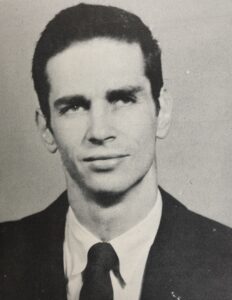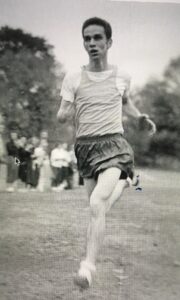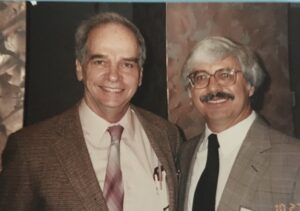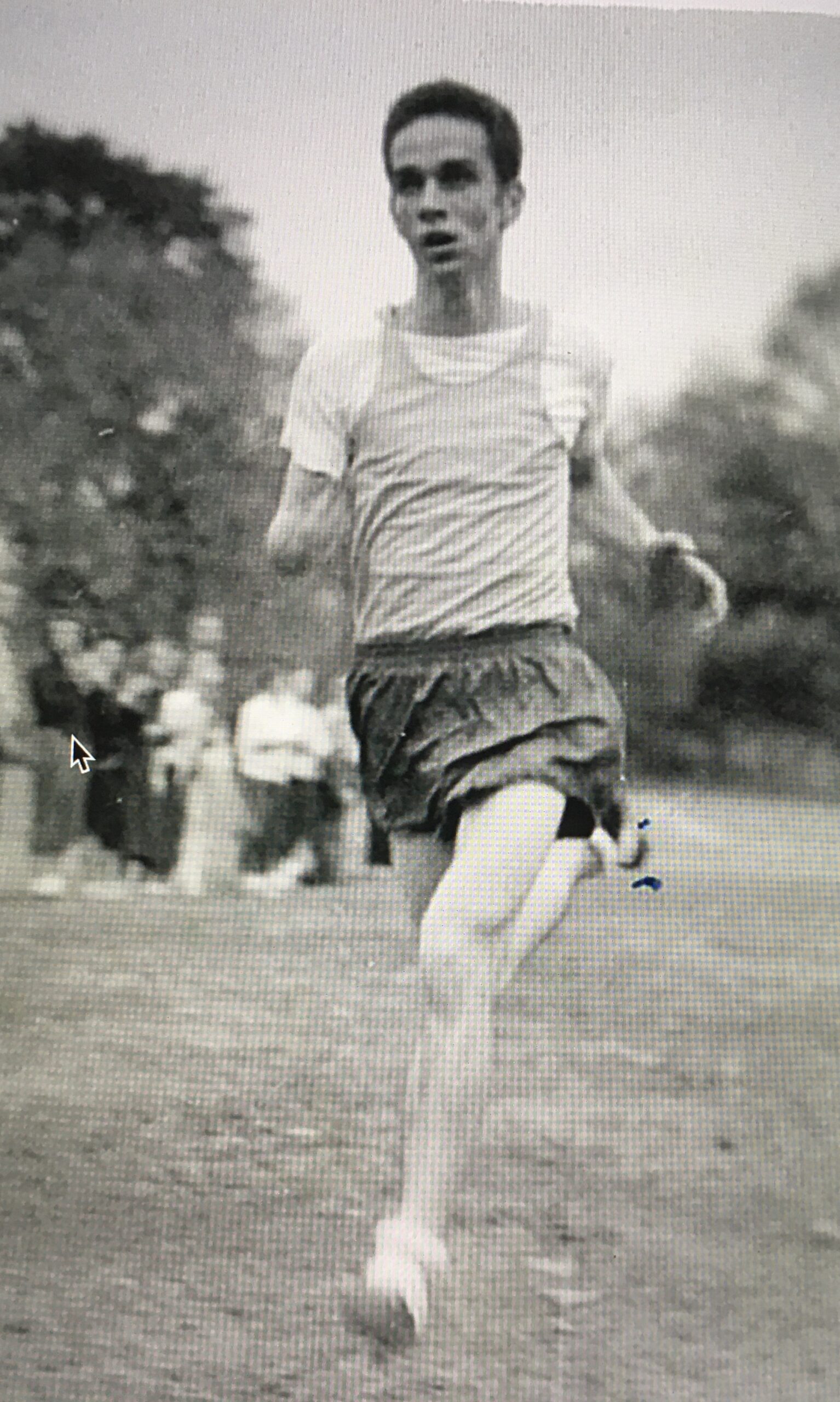Generational World War II babies like myself often read about Olympic athletes. My heroes were Jesse Owens (defied Hitler, won four gold medals), Jim Thorpe (“world’s greatest athlete”), Wilma Rudolph (overcame early childhood polio), Billy Mills (improbable winner in 10K), and Abebe Bilal (barefoot marathon runner). If a Millennial reader knows three of those five famous hearing Olympians correctly, that’s a passing grade. Unless you follow the Maccabiah Games (established in 1932) in Israel, how many of you know well-known Jewish Olympians? Anyone? Of course, who can forget Mark Spitz, the seven-gold medal champion swimmer in the 1972?
Regardless, I know one Jewish Olympic track star that I’ve read about in the early 1960s. Gerry Ashworth is his name. Why him? His name was prominently mentioned in the Boston Globe newspaper as a champion sprinter who broke world records in the 60 and 100-Yard-Dash. As the second leg for the American 4X100 meter relay team, which included “Bullet” Bob Hayes, Ashworth and his teammates won the gold medal and broke the world record in 39.0. But why mention Ashworth, a Massachusetts native? Uniquely, he was the only non-Black sprinter that won the gold as a Jewish-American who also graduated from Dartmouth, an Ivy League college. In short, his feat was a relatively rare triple whammy of a breakthrough. By the way, he’s not deaf.
Nonetheless, my interest in the remarkable athletic achievements of Ashworth led me to write about another Bay State native. Sheldon Freedman, the famous Jewish deaf sprinter and a long jump champion from the 1950s. (Freedman was recently featured in the December JDCC e-newsletter, Issue #223.)
Gradually, I thought of another notable Jewish deaf runner: Stephan P.A. Kugel. In fact, several readers and friends who personally knew Kugel requested a story about this champion long-distance runner from Gallaudet University (GU). It’s a pleasure to write about Kugel who passed away more than seven years ago in North Carolina. Yet his legacy never aged.
 Stephan Percy Aristide Kugel (1934-2013) was a born German Jew who lived in Charlottenberg, about five miles west of Berlin before the nefarious Nazi regime took over. According to the 1940 US Census Report, his parents, Erwin and Hilda (nee Gassmann) Kugel immigrated to New York City with Stephan, his older deaf sister Renate, and brother Peter, all five were Holocaust survivors. A product of the NYC Public Schools and Clarke School for the Deaf in Northampton, Mass., Steve eventually graduated with a biology degree from GU in 1957. In between two deaf residential school teaching stints, he was an ITU printer like many deaf had done in the olden days before the cold-type technology affected their lives adversely. Yet his legacy as a long-distance runner endured over the years, though many have never heard of him.
Stephan Percy Aristide Kugel (1934-2013) was a born German Jew who lived in Charlottenberg, about five miles west of Berlin before the nefarious Nazi regime took over. According to the 1940 US Census Report, his parents, Erwin and Hilda (nee Gassmann) Kugel immigrated to New York City with Stephan, his older deaf sister Renate, and brother Peter, all five were Holocaust survivors. A product of the NYC Public Schools and Clarke School for the Deaf in Northampton, Mass., Steve eventually graduated with a biology degree from GU in 1957. In between two deaf residential school teaching stints, he was an ITU printer like many deaf had done in the olden days before the cold-type technology affected their lives adversely. Yet his legacy as a long-distance runner endured over the years, though many have never heard of him.
 Based on research by Wayne Langbein and Karen Sanfacon, two dedicated records keepers, Kugel set short-course cross-country records from 2.9 to 3.1 miles at GU. His record for the two-mile run of 9:52.1 in 1957 was not broken until ten years later and it ranks third among GU’s best times. Based on Dr. Frank Carnovsky’s history of the Mason-Dixon Conference (disbanded in 1978), Kugel had the distinction of winning the Mason-Dixon cross country individual crown and the two-mile run championship, thus becoming the 5th athlete to accomplish the feat during the years from 1936 to 1978.
Based on research by Wayne Langbein and Karen Sanfacon, two dedicated records keepers, Kugel set short-course cross-country records from 2.9 to 3.1 miles at GU. His record for the two-mile run of 9:52.1 in 1957 was not broken until ten years later and it ranks third among GU’s best times. Based on Dr. Frank Carnovsky’s history of the Mason-Dixon Conference (disbanded in 1978), Kugel had the distinction of winning the Mason-Dixon cross country individual crown and the two-mile run championship, thus becoming the 5th athlete to accomplish the feat during the years from 1936 to 1978.
The late notable Tom Clayton, a versatile coach and mentor at GU, once took me aside in Krug Hall to talk about Kugel as a runner. “Steve, Kugel had an interesting race strategy. He always starts in the back of the pack, then eventually moves up to the front and wins his race easily.” Clayton added another anecdote: “Kugel was a flat-footed runner!” In that case, it is not easy walking or running with fallen arches, which often induces some pain, and eventually tendinitis. However, some photos show Kugel cruising comfortably toward the finish line in first place with a well-placed leg pronation from hip to toe. As the adage goes, “no pain, no gain.”
 Alfred “Sonny” Sonnenstrahl, the current Deaf Seniors of America president, reminisced about growing up with Kugel in NYC. Sonny recalls, “Stephan and I used to jog and run together from 92nd Street to Times Square to catch a movie, then head back home.” “Too tired to run again, I took the train and Stephan ran instead and Steve ended up waiting for me at the end of my rides! That’s a distance of about three miles!”
Alfred “Sonny” Sonnenstrahl, the current Deaf Seniors of America president, reminisced about growing up with Kugel in NYC. Sonny recalls, “Stephan and I used to jog and run together from 92nd Street to Times Square to catch a movie, then head back home.” “Too tired to run again, I took the train and Stephan ran instead and Steve ended up waiting for me at the end of my rides! That’s a distance of about three miles!”
Kugel’s last official race took place between August 25 to 30,1957 during the 8th Deaflympics Summer Games in Milan, Italy. According to Deaf sports writer Barry Strassler, who spoke with the late legendary Coach Tom Berg decades ago, Kugel did not have enough essential opportunity to practice. Yet he won the silver medal in the 10,000 meter-run in a sub-par time of 33:03.8, but placed only 7th in the 5000-meter run, his strong event. According to the United States of America Deaf Track and Field (USADTF), Kugel’s hand-timed performance was good enough to be ranked as the #10 all-time 10,000 meter run by USADTF. Eventually, he was inducted into the 2000 USADTF Hall of Fame and the 1995 GU Hall of Fame for athletes.
This writer Steve, met Steve, the distance man just once 25 years ago on October 27, 1995, during the Gallaudet University Hall of Fame induction ceremony in the Kellogg Conference Center. After taking a photo of us together, I shared it with his college friends many years later. They all commented that he was not always a smiling man on the personal level. By all accounts, he was a brooding type, taciturn, and mostly unsmiling. However, based on the archived photos that I have studied, he brought countless smiles and admiration among fans watching him coasting in his victorious dual meets on the home campus.
Now we know the history about two Jewish Olympians, one deaf and one hearing. Let’s watch for some outstanding Jewish athletes during the 32nd Olympiad Summer Games in Tokyo in July and the 24th Summer Deaflympics in Brazil during December this year.
Meanwhile, be sure to take your vaccine for COVID-19 if we want to watch those Games.
In closing, here is my wishing you all a happy, healthy, safe, and peaceful year of 2021.
Source: Stephen C. Baldwin, Ph.D., Region 3 Representative of Deaf Culture & History Section of NAD.





